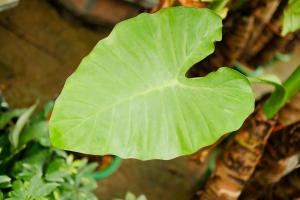Should You Use Tap Water for Plants?
Whether you're a seasoned gardener or just starting out with a few houseplants, you may be wondering whether tap water is safe and effective for watering your plants. Here's what you need to know.
What's in Tap Water?
Most tap water contains a variety of minerals and chemicals, including chlorine, calcium, and magnesium. While these substances are generally safe for human consumption, they can pose problems for some plants.
For example, if the water in your area is particularly hard (meaning it contains high levels of calcium and magnesium), it can lead to the development of scale or mineral deposits on your plants' leaves and in the soil. Similarly, the chlorine in tap water can damage delicate roots and interfere with nutrient uptake.
Alternatives to Tap Water
If you're concerned about the quality of your tap water, there are a few alternatives you can consider. One is to use filtered water. You can purchase an inexpensive pitcher or faucet filter that will remove most contaminants from your tap water, making it safer for your plants.
You could also collect rainwater and use it to water your plants. Rainwater is naturally soft and free of additives, and it can be particularly helpful for plants that are sensitive to chemical additives in tap water.
Factors to Consider
Ultimately, whether you should use tap water for your plants depends on a variety of factors, including the types of plants you're growing, the quality of your tap water, and your goals as a gardener.
For some plants, tap water is perfectly fine. Hardy, low-maintenance plants can generally tolerate the minerals and other substances found in most tap water.
However, if you're growing sensitive plants like orchids or succulents, or if you're trying to grow plants hydroponically (without soil), it may be necessary to use a more specialized water source like filtered or distilled water.
Finding the Best Water Source for Your Plants
Ultimately, the best way to determine the best water source for your plants is to do some experimentation. Pay attention to how your plants respond to tap water and other water sources. Take note of any differences in growth, leaf health, or other factors.
By experimenting with different water sources and monitoring your plants' progress, you can find the best option for your specific gardening needs.
Conclusion
Choosing the right water source for your plants is an important part of successful gardening. While tap water is generally safe for most plants, it can pose problems for some species. Whether you choose to use tap water or an alternative source like filtered or distilled water, it's important to pay close attention to your plants' responses and adjust your watering routine accordingly.

 how many times do yo...
how many times do yo... how many planted tre...
how many planted tre... how many pine trees ...
how many pine trees ... how many pecan trees...
how many pecan trees... how many plants comp...
how many plants comp... how many plants can ...
how many plants can ... how many plants and ...
how many plants and ... how many pepper plan...
how many pepper plan...






























